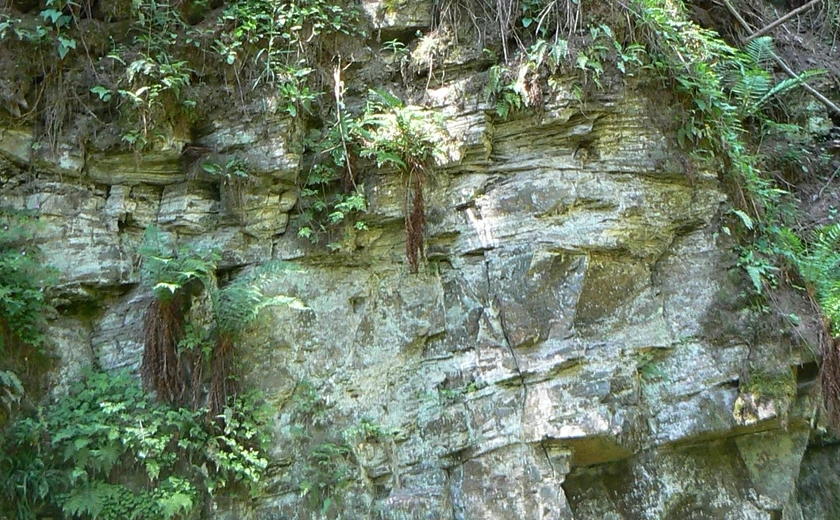Lazura Hill - Lazurový vrch
A northeast hillslope of Lazura Hill, about 1.5 km north-northwest of Michalové Hills. A debris forest with silver fir and wild cherry on a basal substrate of Lazura Hill, with the partial character of an old growth forest.
They were formed here secondarily, though, after the extinction of the medieval castle and after the later termination of the mining of crystallic limestone.
Basic information | |
Category | nature reserve |
Altitude | 530 - 620 m above sea level |
Extent of specially protected area | 23.15 hectares |
Basic characteristic
A rich territory of steep slopes with debris forests and pastures connected by the alluvium of Kosí Creek.
Geology
Epidothic amphibolite with locations of crystallic limestone and quaternary sand-clay sediments.
Geomorphology
The slopes of Lazura and Kamenný Hill falling into the valley of Kosí Creek and the alluvium of Kosí Creek. The territory of the natural reservation of Lazura Hill is full of mine shafts of varying extent after the historic extraction of crystal limestone. The territory belongs to the geomorphological area of Tepelská Highland (part of Bezdružická Highland, region of Michalohorská Highland).
Flora
The more rare species here include Eurasian baneberry, Herb Paris, forest species of broad-leaved helleborine, and bird's-nest orchid. The damp entrances to the former mine shafts provide a home for a number of rare basiphilic mosses like species from the genus anomodon and seligeria.
Reason for protection
The initial and mining work in the area of Lazura Hill provide one of the best opportunities to study the internal structures of the Mariánské Lázně complex as regards their material and structural heterogeneity. The area also provide the opportunity to study the relationship between two materially and metamorphically distinct units of built matabasites with locations of crystallic limestone, having a fundamental influence on the understanding of MLC structures, and in a wider sense, also the relationship of units near the border of saxothuringic and moldanubic zones. The area also provides an opportunity to study the deformational phenomena associated with the internal structures of MLC in relation to metamorphic processes. From a geological strata perspective, the locations of limestone are interesting, unique in their occurrence and character in this part of the Czech massive, including their mineralization. These historic and montanistic valuable objects after the underground extraction of limestone were mentioned as early as 1660 (Weidl, Urban, Hammer 1896).




